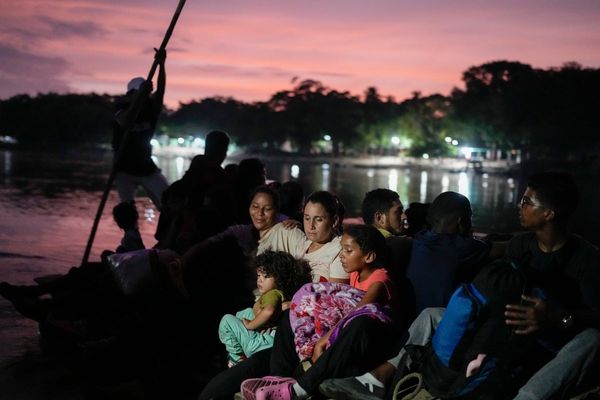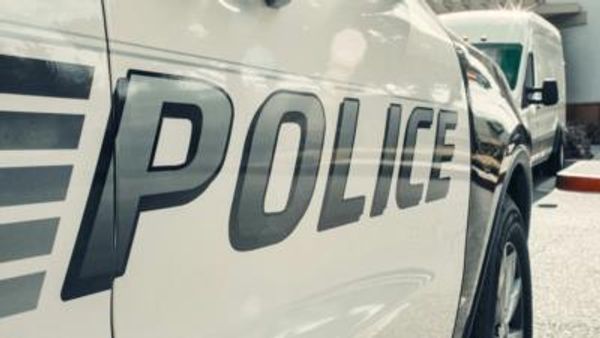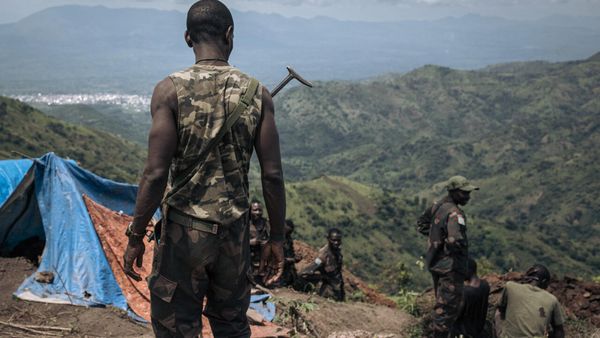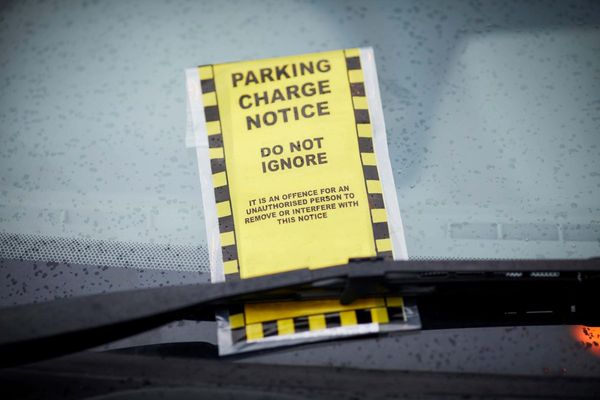WASHINGTON _ The Trump Organization sold an ocean-view property in the Dominican Republic in 2015 to a mysterious shell company that appears tied to Venezuelans linked to a powerful politician now under U.S. sanctions, according to records obtained by McClatchy and the Miami Herald.
The Venezuelans are close associates of Diosdado Cabello Rondon, widely believed to be the second most powerful man in President Nicolas Maduro's regime in the troubled, oil-rich South American nation. The Trump administration has accused Cabello of drug trafficking and money laundering.
The Dominican property sold in April 2015, two months before Donald Trump announced he was running for president. While the amount of the sale isn't known, the future president declared in his May 2016 financial disclosure that the Trump entity that controlled the property had earned $2 million in land sales in 2015. Earlier promotional materials from 2014 showed an asking price of $3.5 million for the property.
There is no evidence of anything illegal on the part of the Trump Organization, but the sale is notable today as Trump tries to muscle out Maduro and blasts past U.S. presidents for failing to drive from power Venezuela's socialist governments.
"Past administrations allowed this to happen," Trump said at a March 27 briefing. During those previous administrations, Trump's company teamed up in the Dominican development project, which his family knew relied on heavy investment from Venezuela, according to U.S. court records.
The Dominican project is another example of how little is publicly known about some of the Trump Organization's foreign entanglements and the potential conflicts those relationships might pose to U.S. policy.
When presented with detailed questions about the sale, the Trump Organization's executive vice president and chief legal officer, Alan Garten, declined to comment. Also declining repeated requests for comment by phone and email: Alejandro Pena-Prieto, the Dominican lawyer who, according to legal documents, was authorized by the Trump company Caribusiness Investments to sell the property in the Dominican Republic.
The Trump Organization sold the Dominican property to a Costa Rican company called Multiservicios Shape de Costa Rica S.A. That company shared multiple overlapping officials with another Costa Rican company created in 2013 called Tu Andamio S.A. that is controlled by a Venezuelan woman named Marlene Coromoto Arenas Colina.
Two of the overlapping officers on the Costa Rican companies, Alejandro Herrera Quiros and Esther del Carmen Jiron Davila, obtained Dominican tax ID numbers the same day and from the same office as Arenas in 2015, according to Dominican tax records obtained by McClatchy/Miami Herald.
Arenas is married to Pedro Fritz Morejon, the former Venezuelan tourism minister under the late President Hugo Chavez, who died in March 2013, making way for Maduro.
Media and think-tank reports link Arenas and Morejon to Cabello, the powerful head of Venezuela's Socialist Party, who has been under sanction by the U.S. Treasury Department since May 18, 2018.
"We are imposing costs on figures like Diosdado Cabello, who exploit their official positions to engage in narcotics trafficking, money laundering, embezzlement of state funds, and other corrupt activities," Treasury Secretary Steven Mnuchin said in a statement at the time.
Cabello was sanctioned far later than other top Venezuelan officials. McClatchy previously reported that Cabello was initially left off the sanctions list in 2017 in the hopes it would sow doubts about his loyalty to the Maduro regime. The goal was to fuel speculation in Venezuela that Cabello was working with the U.S. government.
Rather than appearing to be at odds, Cabello sat next to Maduro last week during May Day pronouncements, a day after a would-be uprising failed in Venezuela.
McClatchy spoke with several Costa Ricans connected to the shell company that purchased the Trump property in the Dominican Republic. They said they didn't know who actually owned the property or didn't recall the details.
Reached by phone, Herrera Quiros told McClatchy he wasn't aware of the Dominican property, had never been to the Dominican Republic and served as an officer on the companies as a favor to a lawyer, Christian Garnier. Garnier's law firm _ which lists offices in Costa Rica and Venezuela _ registered the businesses. Herrera Quiros did not respond to numerous attempts to follow up.
The daughter of another of the overlapping company officials, Edgar Martin Quesada Corrales, told McClatchy that her father, an office messenger, also appeared on both companies as a favor for a secretary who did not work for the law firm.
"He doesn't know anyone," Marianela Quesada said of her father, begging off any further detail.
Neither Edgar Quesada nor fellow officer Jiron, whose profession is listed as a secretary, would appear to have the riches to buy a Dominican luxury property. And their social media profiles show no travel to the Dominican Republic.
Garnier, whose law firm's Costa Rica address doubled as the business address for Multiservicios and Tu Andamio, told McClatchy he didn't remember the companies or their officers, although he and Herrera Quiros are friends on Facebook. Garnier's wife, Ana Karine Nino, who is a lawyer and real estate executive, also appears as an administrative agent in the documents. She is a newly elected legislator in Costa Rica.
"I have no idea," Garnier responded when asked the purpose of the Costa Rican companies, adding he didn't recall Herrera Quiros or his own law firm's second office in Caracas, Venezuela, which is listed on its website.
A Venezuelan partner in Garnier Abogados, Alejandro "Guppy" Medina Arnesen, did not respond to multiple attempts to reach him by phone or email at contacts provided by his firm.
McClatchy was unable to reach Morejon and Arenas, the married couple, at three businesses in Venezuela connected to them.
When McClatchy reached one of Morejon's business partners, Jose Reinaldo Corona Hernandez, the first call dropped after Corona was asked about Morejon's foreign businesses.
It's unclear whether Corona hung up or if Venezuela's tattered telephone network was to blame. Subsequent phone calls were either quickly dropped or went to voicemail.
The Trump Farallon Estates at Cap Cana were going to be a series of luxury villas that would overlook the Caribbean Sea. The Trump portion was an anchor for the larger Cap Cana project that included a marina, beachfront hotels and multiple Jack Nicklaus-designed golf courses.
Trump appeared personally at the launch of the Trump-branded estates in May 2007, helping the developers book more than $300 million in sales on the first day.
Among those buyers was Venezuelan Richard Tucker Loero, owner of a Venezuelan private university chain, who said he invested his life's savings in a plot.
"People bought because it was Trump," he said in an interview. "He was the great New York real estate developer, a TV star."
But the project's developers couldn't pay all their bills during the global financial crisis and Farallon Estates remains largely undeveloped today.
The Trump Organization sued Cap Cana and the prominent Hazoury family, the developer, in 2012 after not receiving roughly $6 million in licensing fees it was owed.
They settled in 2013 _ with two properties gifted to the Trumps among the terms.
The first of those two lots was sold to the Costa Rican company in 2015, while the second lot was sold in the summer of 2018 to a Swiss businessman, Robert De Mico. Neither sale has been previously reported.
Speaking to McClatchy from Geneva, De Mico said he has started building a summer home on the lot he purchased, which he said would be the first construction on any of the Farallon lots.
"I never spoke with your president or his son. I never had contact with them," De Mico said in confirming that he knew he was buying from a company now run by Eric Trump. He declined to say how much he paid for the property but said it was "much lower" than the property's $5.5 million asking price in 2014.
Despite the earlier lawsuit, the Trump Organization and Cap Cana renewed their partnership in 2017, with Eric Trump visiting the development two weeks after Trump's inauguration.
The developers said that they were "excited to be working with the Trump Organization in the future phases of the project."
The lawsuit revealed that the Cap Cana developers, members of the Hazoury family, had turned to Venezuelans like Tucker Loero looking to move their money out of the country as a source of funding for the foundering project.
In June 2010, Fernando Hazoury wrote to Eric Trump that in the wake of the global recession, the Dominican developers had been "aggressively exploring the Venezuelan markets ... and due to the political issues of the aforementioned country, there is great interest in making investments abroad."
Operating in places with fewer legal restrictions and less transparency is not new to the Trump Organization. While other big family-named developers such as Marriott or Hyatt build hotels in Western capitals such as London and Paris, the Trump Organization over the past 15 years expanded into less developed countries such as Indonesia, Azerbaijan and Panama. The Trump overseas business model is not to rely on his own company to arrange financing, but to collect a licensing fee for use of the Trump name, plus a small percentage of the revenue from condo sales and hotel stays.
The Dominican resort area is on the eastern tip of the island of Hispaniola, about 90 minutes by air from Miami or Venezuela, and hopes to develop alongside its more advanced neighbor, Punta Cana, whose all-inclusive resorts are popular with American tourists.
The broader Cap Cana development has been popular with Venezuelans tied to the Maduro regime and the preceding Chavez regime who have invested in the project and bought homes there, said an expert on the region who demanded anonymity because of his role assisting ongoing federal investigations into the region.
"Cap Cana is Disneyland for Chavistas," the expert said.
Adrian Velasquez Figueroa, head of presidential security for Venezuelan strongman Chavez, is among several Venezuelans who own or have owned properties in Cap Cana, although not the part tied directly to the Trump Organization. His Cap Cana property was in a neighborhood where homes started above $400,000 and went as high as four times that. His wife, Claudia Diaz Guillen, was Chavez's nurse, and later treasurer of Venezuela. She was hit earlier this year by the U.S. Treasury Department with sanctions for allegedly taking bribes that included a Cap Cana property. The couple is under house arrest in Spain.
Cap Cana was also home to Omar Farias Luces, dubbed the "Insurance Czar" for his work with the Venezuelan state oil company. The businessman has been described as a confidante of Chavez and Cabello. As of April 2018, he was a shareholder _ along with Marlene Arenas and the Venezuelan law partner of Garnier, Alejandro "Guppy" Medina Arnesen _ in a Venezuelan investment company called Vale Inversiones.
After the release in April 2016 of the Panama Papers, secret offshore-company documents, both Farias and bodyguard Velasquez struggled to explain the wealth hidden behind shell companies. Farias was arrested trying to flee the island in August 2016 amid a bank collapse. He was arrested again in the Dominican Republic in early 2018.
Morejon and Arenas _ the Venezuelans tied to the Trump property purchase _ also had multiple companies in Florida, beginning in 2010 and some active through 2016, according to incorporation records.
McClatchy visited the Northwest 66th Avenue Miami address listed on documents for Distributors Zen LLC, Invershow LLC, Carrillo Colina Construction LLC and Sidney Production USA Corp. Each listed Morejon and Arenas as managers.
"I had no idea what they had. I know they're in Venezuela," said Ali Carrero, a Venezuelan immigrant who said he's rented the property for a long time and sublet space to Morejon and his wife for about six months, a time period that appears at odds with incorporation records that list the address over several years.
"They used it for storage, nothing else. They were clients that stored merchandise," Carrero said of the warehouse property, whose door reads Shipping Logistics Corp.
Many of the overseas companies that identify Morejon and Arenas _ including some of the Florida firms _ have the same names as companies in Venezuela shown as belonging to them. These provide a range of services, including scaffolding, lighting and even representation for emerging artists, for concerts and similar large public events.
But Arenas also has companies with a closer tie to the Venezuelan government. She is a major shareholder in Vale Canjeable Ticketven C.A., a company that makes cards that store value and are used for something akin to a Venezuelan food-stamp program. Her husband at one point was also a top official in the social development ministry, which provides food aid.






